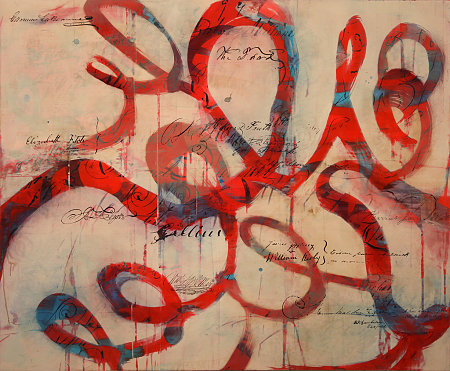
A Chance Conversation
*
In Arizona’s Chiricahua Mountains last year, I was birding with some friends. Our guide, Tony Godfrey, had been a fireman for almost twenty years before he suddenly quit and became a nature guide. In one of Tony’s stories about his firefighting days, he enters a building—a restaurant—where there is a fire, and in the dining room there is no flame. He and the two men with him punch a hole in the ceiling but find no flame there, either. They go into the kitchen and find fire only when they punch through the ceiling, but one of the three has difficulties with his oxygen tank, and all three go outside to fix it. As they reenter the dining room, another fireman, who has entered the kitchen from another door, issues a mayday call because an air conditioner unit on the roof is starting to come down, and he believes that the other firefighters are inside, in harm’s way. The air conditioner crashes through the ceiling into the kitchen, the fire explodes through the ground floor, and Tony and the other two firemen are blown back out the door they have just re-entered. The delay with the oxygen tank has saved their lives.
*
In The Maltese Falcon, the detective Sam Spade talks about a man he was hired to search for in the Northwest, a man named Flitcraft, who had abandoned his wife and children to start a completely new life when a constr¬uction beam fell near him, and he realized how quickly and arbitrarily he could have been killed. The incident, he felt, “had taken the lid off life and let him look at the works,” showing him that it was not the “clean orderly sane respectable affair” he had thought but one in which “men died at haphazard like that, and lived only while blind chance spared them.” The part Spade likes best is that when nothing further happened of this revelatory or remarkable sort, Flitcraft settled into the same middle-class, suburban life he had left behind, with a new family almost identical to the one he had deserted.
Our guide Tony Godfrey reacted to his look at “the works” by giving up his job as a firefighter and starting a new life as a nature guide. Now, I could call that merely a reasonable assessment of the danger of his job, but he didn’t just leave something behind; he asserted his own will. Francis Bacon writes in “Of Fortune” that, though we cannot deny that accidents contribute to our fate, yet “chiefly, the mould of a man’s fortune is in his own hands.”
When I think about my life, my family, and my friends, I am inclined to tot up the interventions of chance as fortunate ones. But I do not wish to tempt any “purblind Doomsters,” as Thomas Hardy writes in “Hap,” to change the balance. What I do wish is that I could get Browne and Woolf, Bacon and Gould, Conrad and Hardy together for a discussion about chance and contingency. Perhaps the discussion is going on right now, and it’s just my luck to be missing it.
